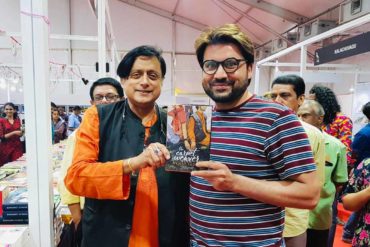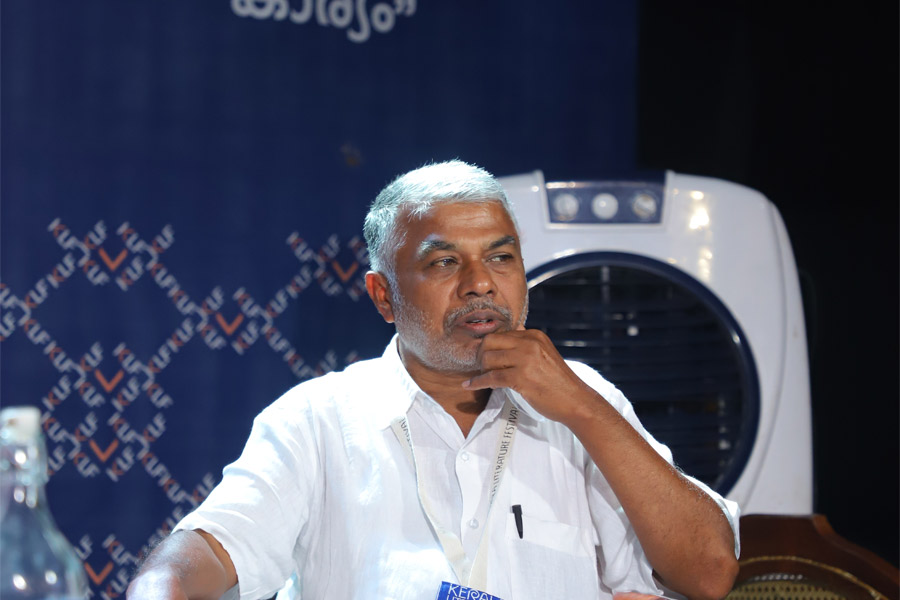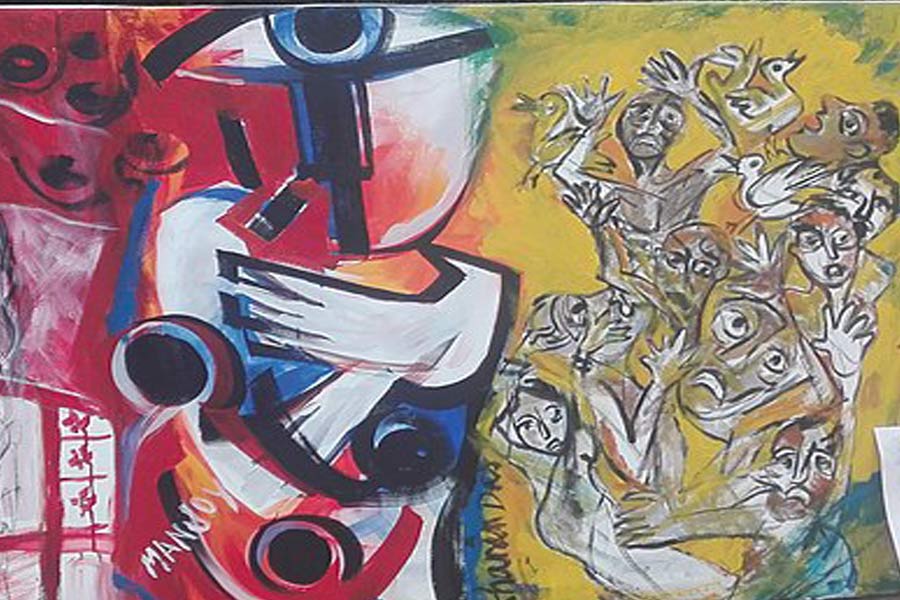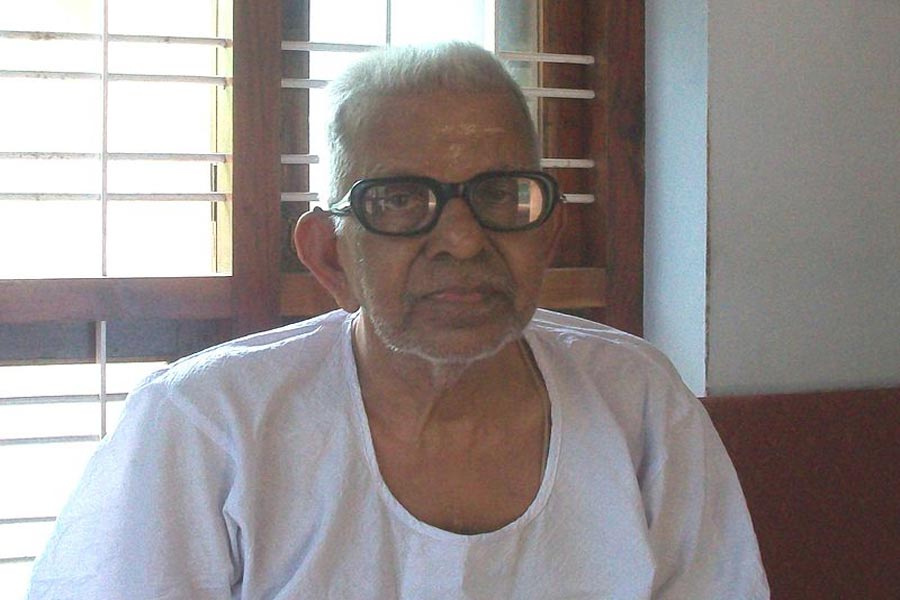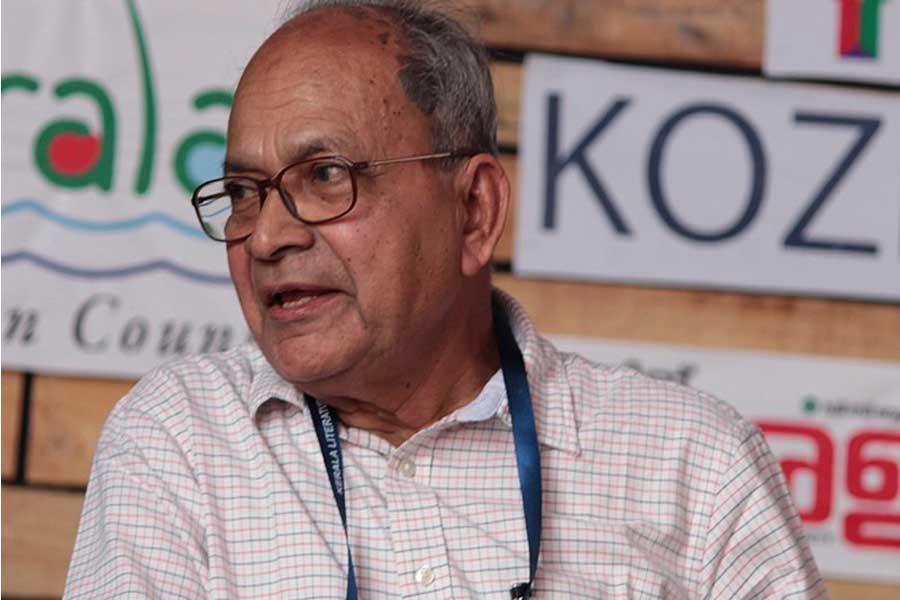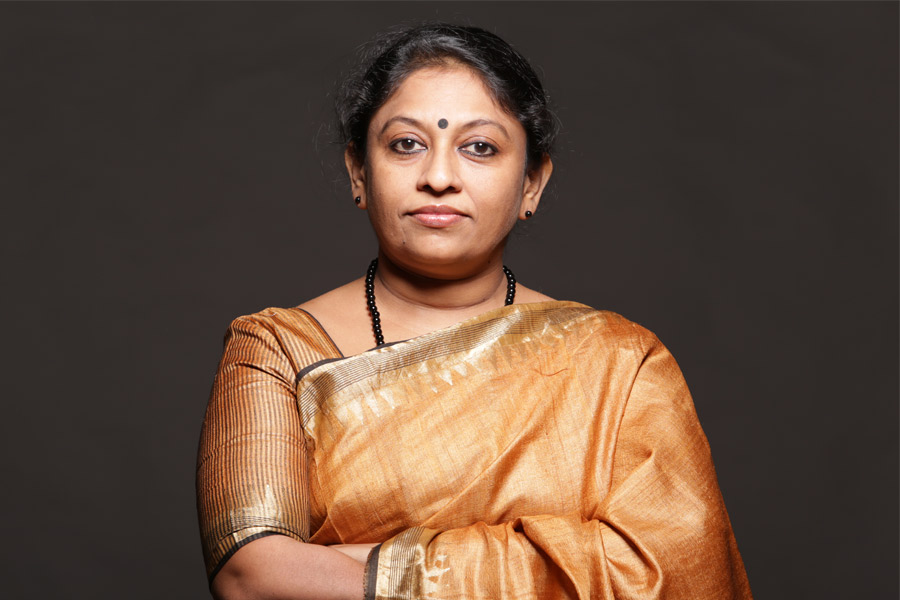George Orwell once said, “In our age there is no such thing as ‘keeping out of politics.’ All issues are political issues, and politics itself is a mass of lies, evasions, folly, hatred and schizophrenia.”
Leading Malayalam writer and Kendra Sahitya Akademi awarding-winning author KR Meera talks about how writers do not have the option to be apolitical at the recently concluded 5th edition of Kerala Literature Festival held in Kozhikode. The Kottayam-based author is known for her writing on subjects that are hard-hitting and questions the role of women in the patriarchal setting.
“Every writer is a political writer,” stated Meera at the very beginning of the interview and adds, “It is very difficult for any writer to shut down from what is happening in and around society. And as a writer, we reflect on what’s happening in society through our writing. Writing’s a mixture of conscious and unconscious creative thinking— intuition and craft—it feels very unnatural to analyse it in any other kind of systematic way.”
She emphasised that all writing is political act and all litterateurs are not completely free of it. “We all write in reaction to something, what we call the inspiration or the muse that triggers creativity. My muse happens to be more inclined towards social and political concerns, perhaps because of my history and the milieu in which I grew up. I believe no writer can afford to be apolitical especially in today’s time.”
The author of the critically acclaimed book Hangwoman, shared that she does not intend to be called a feminist rather she wants her readers to think and understand the role of women in our society. Talking about her shift in writing style she said it happened after her first short-story was published.”
Meera never wanted to be an author up until her husband sent her the first short-story for publishing without her knowledge. “It was when a colleague, junior to me, wrote an e-mail stating that he never reads women writers as their narrative starts at the kitchen and ends at the verandah. It infuriated me to a large extent and made me realise that I need to celebrate women through my writing and represent them in their true form,” explained the journalist-turned-author, who covered human rights for the Malayalam daily, Malayala Manorama.
She added, “I wish to defy the stereotypes that pervaded our families, societies, politics, arts and every other space. The women in my stories are unapologetically true to themselves. I don’t intend to write stories about feminists. I want to write stories that would turn the readers irrespective of their gender into feminists. The idea is to tell the stories of women who live the truth. I believe, a writer is inherently a feminist, humanist, environmentalist and a socialist.”
Coming from a matrilineal society, the role of women is always questioned, said Meera. “Despite Kerala having the highest literacy rate, we live in a highly dominated patriarchal society. The men always make the decisions. Though the women in this state are more empowered than men of respective age groups in terms of information and intuitive knowledge. But it is always about the power dynamics and men in our society holds it. But in my narrative, I try to question these very power dynamics. My characters represent women whose stories are important to be heard,” stated the author, who through her writing desires to see people and characters get the justice they deserve in their everyday lives.
Through her writing, she also questions the pre-conceived notion about women’s writing. “It is generally believed that a woman writer will reflect on narratives based on her relations, home, family, love, etc. Through my stories and character, I want to represent women in spaces which are predominantly male-dominated,” says Meera, her book Hangwomen narrates the story of a woman who lands-up as a Public Executioner.
Reflecting on the nation-wide protests against CAA, she said, “We have reached a point where it has started hurting people. These protests are definitely the need of the hour and we need to unite and stand together during these difficult times.”

